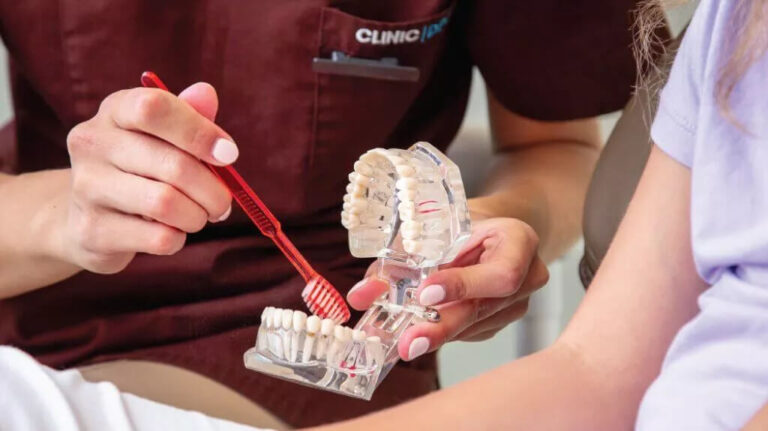Persistent dry mouth is not just an unpleasant sensation every day. A malfunction of the salivary glands can lead to unpleasant symptoms such as bad breath and dangerous diseases such as tooth decay.
Xerostomia is the name given to this disorder in dentistry. It differs from simple thirst in its persistence. Dry mouth on waking or in a stressful situation is perfectly normal, but a persistently dry mouth can be a perfect breeding ground for bacteria.
Why is salivary secretion impaired?
Xerostomia can develop for many reasons, such as:
- Diseases. Certain chronic diseases, such as diabetes, Alzheimer’s disease and arthritis, increase the likelihood of “dry mouth”. Even a simple cold can lead to a “dry mouth”: general dehydration and mouth breathing.
- Medicines. Many medicines, both prescription and over-the-counter, can dry out the lining of the mouth as a side effect. This list includes medicines to treat depression, anxiety, insomnia, diarrhea, overweight, problematic facial skin and many other conditions. We always recommend that you check with your prescribing doctor, pharmacist or dentist about possible side effects of medicines.
- Harmful habits. Smoking can be one of the main factors affecting saliva production. As tobacco smoke contains substances that affect the oral mucosa and smoking involves a lot of mouth breathing, smoking can cause a dry mouth.
- Therapeutic procedures. Certain therapeutic procedures can also contribute to oral mucosal disorders. Some treatments impair mucosal function and result in insufficient salivary secretion. The most common treatments that cause disorders include radiation and chemotherapy.
- Fluid deficiency. Dehydration in the body can occur for many different reasons. Fluid dehydration can result from insufficient fluid intake or an irregular diet, as well as from a variety of bodily disorders such as colds, diarrhea and excess sweating.
Mucosal dysfunction manifests itself in a variety of symptoms. The following signs indicate that the mouth is not getting enough fluid:
- Bad breath
- Unquenchable thirst
- Dry throat
- Difficulty speaking, chewing or swallowing
- Stickiness in the mouth
Why is it important to treat dry mouth?
As we have already mentioned, insufficient saliva production can lead to a variety of oral problems and unpleasant everyday symptoms.
The disturbed metabolism in the oral cavity creates the conditions for the accumulation of harmful bacteria, which damage the tooth enamel when acids are administered. As the protective layer of the tooth decays, caries begins to destroy the dentin, the bony layer of the tooth that protects the nerve cells. As decay progresses, the tooth often becomes untreatable and has to be removed.
If you notice that the dryness in your mouth does not go away – it becomes a permanent condition – we recommend that you consult a dentist. During your visit, the doctor will help you to identify the cause of the problem, assess your current oral health and suggest an individual action plan to help you restore your oral and dental health.
You can make an appointment at your convenience by calling. +370 632 00005 or by sending us an email. email konsultacija@clinic.dpc.lt





